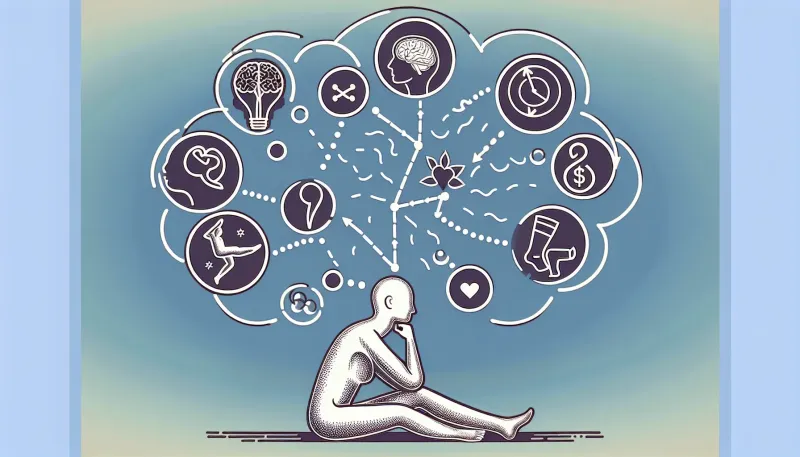The Role of Mind-Body Connection in Managing Chronic Illness

Explore the significant role of the mind-body connection in managing chronic illness. Understand how integrating mental and physical health can lead to improved outcomes.
Chronic illnesses are long-term health conditions that can affect various aspects of life, including physical, emotional, and mental well-being. Recent research has shed light on the integral role of the mind-body connection in effectively managing these conditions. This article delves into how understanding and harnessing this connection can improve patient outcomes and offer a holistic approach to chronic illness management.
Understanding the Mind-Body Connection
The mind-body connection refers to the relationship between an individual’s thoughts, attitudes, behaviors, and their physical health. It postulates that the mind and body are in constant communication and that mental states can significantly influence physiological functions.
The Science Behind the Connection
Neuroscience and psychoneuroimmunology have provided substantial evidence supporting the mind-body connection. The brain communicates with the immune system via neural and hormonal pathways, affecting immune responses and inflammation, which are critical factors in many chronic illnesses.
The Impact of Stress on Chronic Illness
One of the major components of the mind-body connection is stress. Chronic stress can exacerbate symptoms and progression of illnesses like diabetes, cardiovascular disease, and autoimmune disorders. Understanding this relationship highlights the importance of stress management.
Cortisol and Its Effects
Stress triggers the release of cortisol, a hormone that, in high levels, can lead to increased blood sugar levels, suppressed immune function, and other detrimental effects on health. Studies show that chronic stress can alter cortisol patterns, thereby impacting chronic illness management.
Mind-Body Techniques for Managing Chronic Illness
Incorporating mind-body techniques into treatment plans can significantly improve patients' quality of life. Techniques such as mindfulness, meditation, and yoga have shown promise in helping manage chronic conditions.
Mindfulness and Meditation
Mindfulness practices, which focus on being present in the moment, can reduce stress and improve psychological well-being. Various studies indicate that mindfulness and meditation can decrease symptoms of anxiety and depression, reduce pain perception, and enhance overall quality of life.
Yoga and Tai Chi
Yoga and Tai Chi combine physical movement with mental focus and breath control, promoting relaxation and stress relief. These practices have been shown to reduce inflammation markers, alleviate pain, and enhance physical function in individuals with chronic illnesses.
Integrating Mind-Body Practices in Conventional Treatment
Integrating mind-body practices into conventional medical treatment can lead to more comprehensive care. Healthcare professionals are increasingly recognizing the benefits of these practices and recommending them as complementary therapies.
Holistic Approaches in Healthcare
Holistic healthcare approaches address physical symptoms and also consider emotional and mental health. This approach can lead to personalized treatment plans that cater to the individual needs of patients with chronic illnesses.
Patient Empowerment
Empowering patients with knowledge and resources about mind-body techniques enables them to take an active role in their health management. Education on stress management, mindfulness, and physical activities can provide patients with valuable tools to manage their conditions effectively.
Challenges and Considerations
While the benefits of the mind-body connection are well-documented, there are challenges in integrating these practices into standard medical care, including skepticism, lack of awareness, and limited access to trained professionals.
Overcoming Barriers
Efforts to overcome these barriers include increasing awareness through education, conducting more research to build the evidence base, and providing training for healthcare providers.
Implementation of these techniques requires a collaborative approach between patients, healthcare providers, and complementary therapy practitioners to ensure cohesive and supportive care strategies.
Conclusion
Addressing chronic illnesses requires a multifaceted approach that includes understanding and leveraging the mind-body connection. Incorporating practices such as mindfulness, meditation, yoga, and stress management can significantly enhance the management of chronic conditions, leading to improved patient outcomes and quality of life. As the medical community continues to embrace these integrative approaches, patients will benefit from more holistic and effective care.



























